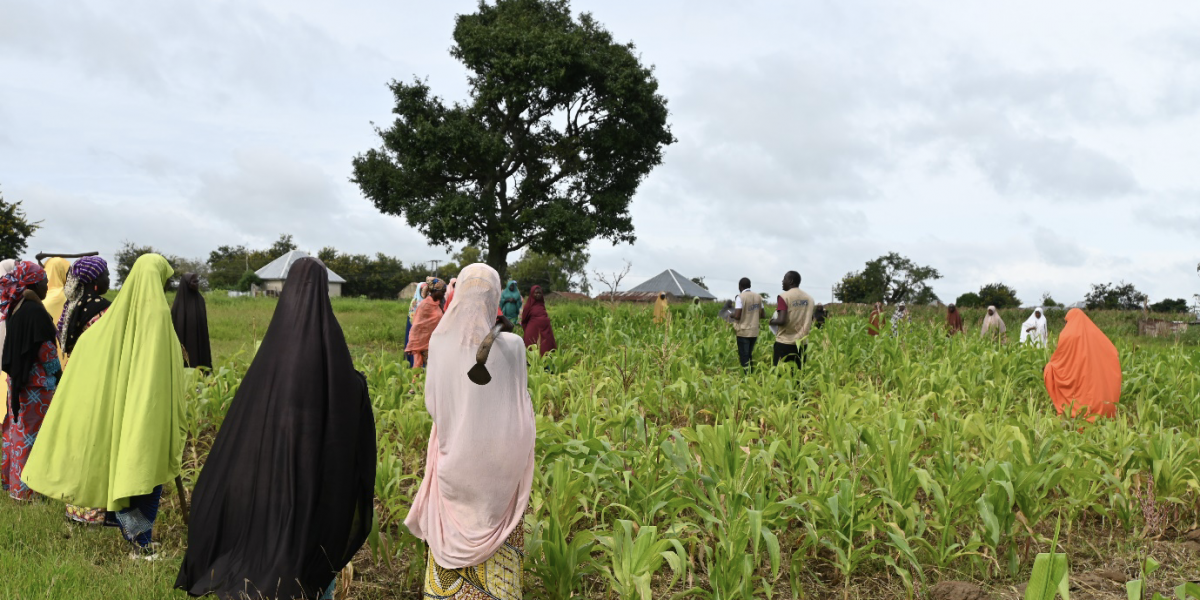
Undoubtedly, a fundamental challenge transforming life on earth — both now and in the decades ahead — is our rapidly climate change. Greenhouse gases, ocean acidification, unpredictable weather and storm patterns, and desertification, are exacerbating existing societal challenges.
The current change in climate is further straining natural resources, global and local economies, biospheres, food security, and international development.
To address the global impacts of climate change on the agro-ecosystem, some actions can be adopted like educating to inform and inspire behavioral change, prevent negative effects, and mitigate threats.
In Adamawa State, northeastern Nigeria, Jesuit Refugee Service is championing new techniques through its Farmers Field School (FFS) initiative. The program allows farmers who survived the Boko Haram insurgency to train and learn in new farming techniques while providing access to high-income earning opportunities.
“We have realized that over 50 percent of the population make a living from farming, but the farmers have little or no knowledge about how climate change impacts their business,” says JRS Livelihoods Coordinator, Ayodele Oluseyi.
“As such, JRS is delighted to be equipping the farmers here with knowledge on how to adjust to climate change and the different planting seasons, creating awareness around issues affecting farmers.”
According to the United Nations Office for the Coordination of Humanitarian Affairs (UN OCHA), across northeastern Nigeria, 7 million people may become food insecure, up from pre-COVID-19 figures of 3.7 million.
Most of them are women and children. “[Covid-19] has stopped children from going to school, the cost of transportation has increased, and we can’t go to our businesses,” says Sarah Ishaku, displaced in Borno.
The FFS further provides improved seeds — genetically modified to adapt and grow in challenging climates — fertilizers, and herbicides, while offering a guide on how to deal with losses associated with food storage issues linked to climate change.
The northeast region of Nigeria is readily becoming a waterless habitat at a very rapid rate per year, in part due to poor sanitation practices. Nevertheless, climate-smart agriculture has already assisted in enhancing the agricultural yield and generally improving the quality of crop production in the region.
Mr. Iko, an extension agent participant at the JRS Farmers Field School, says that “The Internally Displaced Persons (IDPs) in Girei community, especially women are making efforts to engage in farming activities with little or no funding.
Some women during the off — dry — season have resolved to doing menial jobs to keep alive till next cultivating season. When the rain stops, the crops start to dry up and its saddening seeing efforts employed during cultivation wasting.
However, JRS has been supportive in educating and engaging women to be more productive during and after the farming season.
Ultimately, education is crucial in building the knowledge, skills, and behavior successful farmers need to adapt to climate change. It supports farmers to be responsible to the environment and active in leading on the issues in their communities.


